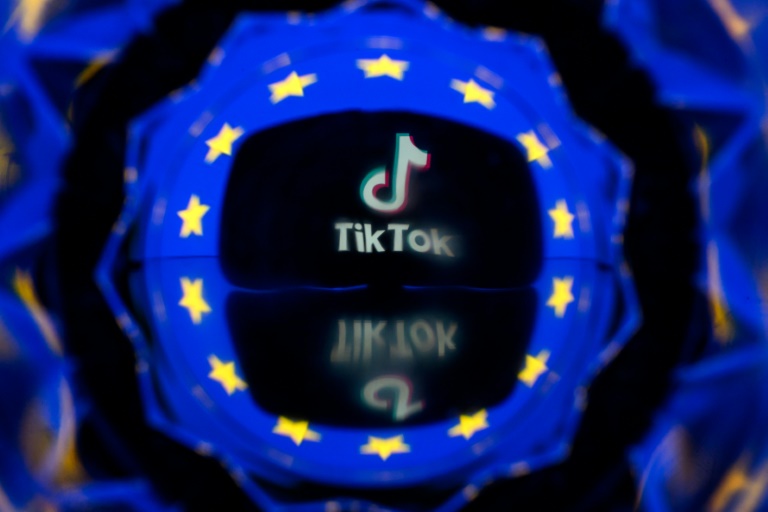A new bill passed by a unanimous vote in a key House committee on Thursday that threatens to ban TikTok from all U.S. phones and tablets, exhibiting renewed bipartisan efforts to address national security concerns associated with the popular app.
The proposed legislation would compel TikTok’s parent company, ByteDance, to divest from its China-linked ownership within 165 days, effectively prohibiting the app from U.S. app stores.
AFP
The draft legislation, spearheaded by Rep. Mike Gallagher (R-Wisc.) and Rep. Raja Krishnamoorthi (D-Ill.) has gathered support from the White House and House Speaker Mike Johnson. However, its fate in the Senate remains uncertain, emphasizing the contentious nature of the debate surrounding TikTok’s operations in the United States.
The bill aims to mitigate national security apprehensions linked to Chinese ownership of TikTok, a concern that has persisted despite assurances from company CEO Shou Chew that the app poses no threat to Americans. Proponents of the bill argue that it is not a ban but rather a measure to compel ByteDance to sever its ties with the Chinese Communist Party, thereby safeguarding American interests.
“TikTok could live on and people could do whatever they want on it provided there is that separation,” Gallagher stated on Wednesday, urging U.S. ByteDance investors to support a sale. “It is not a ban—think of this as a surgery designed to remove the tumor and thereby save the patient in the process.”
TikTok, on the other hand, is vehemently opposing the legislation, mobilizing its user base with in-app notifications decrying the bill’s potential infringement on Americans’ constitutional rights to free expression. The company argues that the bill would have dire consequences for millions of businesses, creators, and artists across the country, sparking a heated debate over the balance between national security concerns and individual liberties.
Despite the bill’s proponents emphasizing its focus on national security rather than content censorship, critics, including the American Civil Liberties Union (ACLU), contend that it would impede Americans’ free speech rights.
“We’re deeply disappointed that our leaders are once again attempting to trade our First Amendment rights for cheap political points during an election year,” stated Jenna Leventoff, senior policy counsel at the ACLU. “Just because the bill sponsors claim that banning TikTok isn’t about suppressing speech, there’s no denying that it would do just that. We strongly urge legislators to vote no on this unconstitutional bill.”
Additionally, major tech powerhouses such as Apple and Google voice concerns about the bill’s potential infringement on their First Amendment rights, cautioning against government interference in private business operations.
The legislative push against TikTok underscores long-standing apprehensions about Chinese influence over American digital platforms and data privacy. While the U.S. government has not publicly presented evidence of Chinese government access to TikTok user data, policymakers remain wary of potential risks, citing China’s intelligence laws and the broader geopolitical tensions between the two countries.
Efforts to curtail TikTok’s presence in the United States date back to the Trump administration, which attempted to enforce bans through executive orders, only to be thwarted by legal challenges. The current bill represents a legislative response to circumvent these challenges and bolster the legal framework for addressing TikTok’s ownership structure and data practices.
China
Cybercrime
U.S.
2024-03-10 15:41:02
Article from www.ibtimes.com
